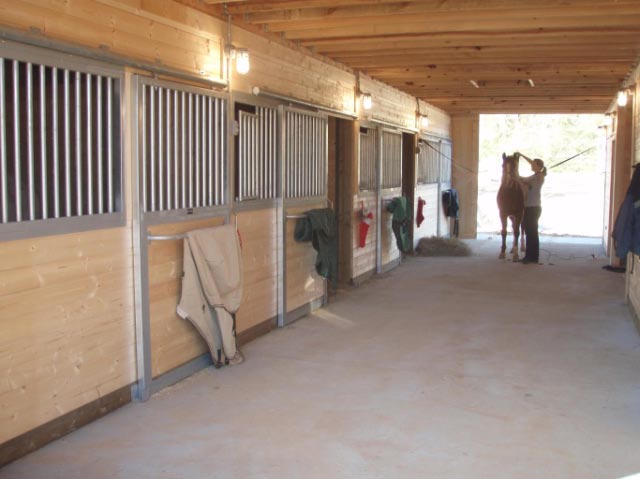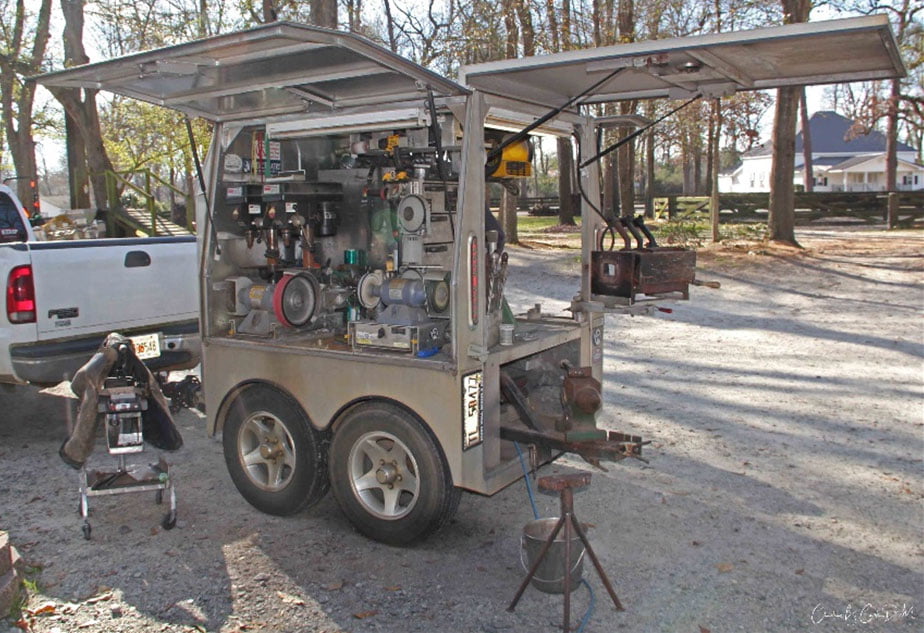You bought the horse, the saddle, the bridle and the brushes, combs, saddle pads, fly masks and boots. You found a good place to board and a veterinarian but what’s missing? A farrier! So how do you go about finding a farrier?
Let’s talk with how you become a farrier. Some farriers start out as apprentice farriers and work beside an accomplished farrier for several years. The senior farrier starts by teaching them basic skills and the apprentice learns new skills over the years. Other people attend a farrier school. There are several in this country. Every farrier will have a different set of skills that are perfected by years of working on horses. The type of horses that they work on determines the skill set. For instance, some farriers spend their entire careers working on racehorses who perform on flat racing tracks in the United States and Europe. Other farriers are highly sought after for their ability to shoe show horses; Arabians, American Saddlebreds, Morgans and Tennessee Walking Horses all have specific shoe types based on their unique gait characteristics. The farrier has to be knowledgeable about what shoes and pads are legal for competition or the exhibitor would be excused from a competition. If you are riding a reining horse for competition you will need a farrier that knows how to apply sliding plates. Your eventer may need studs for the cross country course and the list goes on. So the farrier you need depends a lot on what you are going to do with your horse.
So how do you know if your farrier has the skills to work on your horses successfully? The answer in most cases is to talk with other horse owners and veterinarians in your area and find out which farriers have a good reputation for quality work on horses in your discipline. While some farriers have a website or Facebook page many farriers don’t advertise, they build their business by word of mouth.
Keeping a good farrier
I spoke with 3 of the best farriers in our area, Rick Talbert, Brent Gunter and Kevin Walker. Together they have 79 years of experience. I asked each one what were the things that made them want to work for a customer and what things would make them want to stop serving a customer.

“Concrete, power and a roof” stated Brent Gunter. “I have five workdays per week and I can only shoe a certain number of horses per day. When you calculate resets every 6 weeks you cannot afford to miss days of work due to weather. If it is raining or a mud bog at your place we can’t work on your horses on their set day. Now we have to reschedule.” Farriers take a great deal of pride in their work. A few degrees makes a difference in the balance of a horse. If the horse isn’t sanding on a level surface it makes it very difficult if not impossible to do precise work. It’s even worse if they horse is standing in grass or sand. Finally talented farriers have a host of tools that allow them to bend shape and contour custom horses shoes. You need power to be able to operate the grinders, saws and drill presses on todays’ modern farrier vehicle.
“Bad attitudes, unreasonable expectations and personality clashes” were factors for all of the farriers. Rick Talbert said, “I really like to have a conversation about what you expect to do with the horse so that we have a common goal.” This becomes very important with horses with orthopedic problems, lameness and conformational faults. Brent Gunter stated “I really want to be part of the team, but that takes both of us doing our part to get the horse to the goal line”.
“Unruly horses, slow pay and not keeping appointments” I can vouch for all farriers, we put our lives and careers at risk every time we get under your horse. One kick or a strike in the head and we are in the hospital or worse it is a career-ending injury. All horses kick and all horses can be spooked and react suddenly. When you are holding your horse for the farrier you should always;
- PUT DOWN YOUR CELL PHONE
- Stand up to hold the horse
- Minimize distractions in the barn. It is both rude and dangerous to have children and dogs running amuck while the farrier is working.
- Use the time with your farrier to have a conversation. Talk about what you are doing. Ask what he thinks about the condition of the hooves and shoes. Does he see any potential problems that may need further attention.
- Enjoy the visit! Most of us our friends with our farriers. We enjoy their company and respect their work.
- Go the extra mile. A bottle of cold water and fan are very welcome in the Georgia heat. Please apply fly spray to your horse before he starts and do not apply a hoof dressing.
Unruly horses is not acceptable anymore. You can schedule your veterinarian to come and tranquilize your horse for shoeing or trimming. There are many drugs and combinations that make the work safe. Dormosedan Gel can be given orally by horse owners and is very effective when given correctly.
As for slow pay it just not how you do business when you want to keep a good farrier.
Charlene B. Cook DVM


